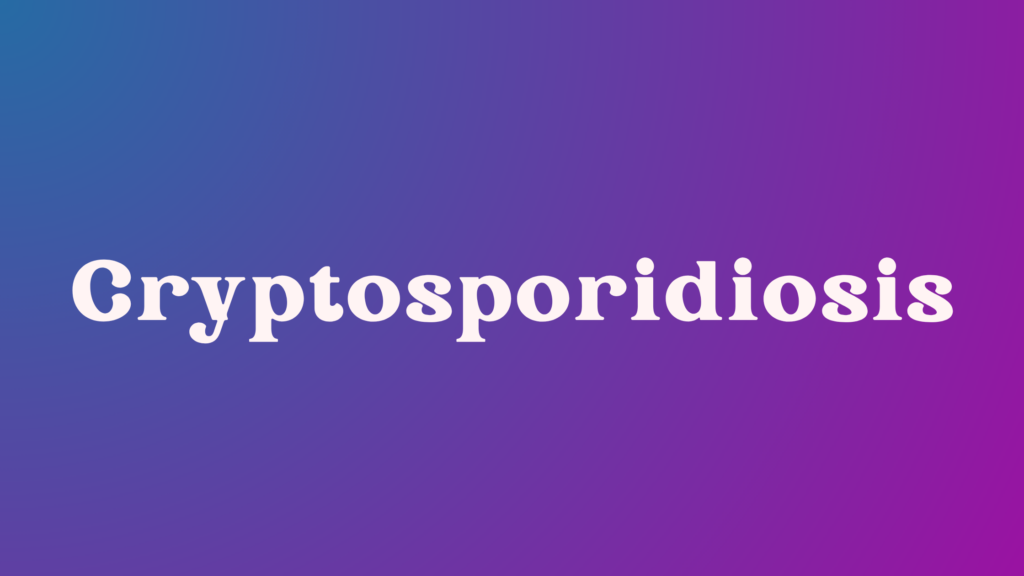What is Cryptosporidiosis? 💧🦠
Cryptosporidiosis is an infectious disease caused by the protozoan parasite Cryptosporidium. It primarily affects the intestines, leading to watery diarrhea and stomach cramps.
How is Cryptosporidiosis Transmitted?
- Drinking or swallowing contaminated water (including swimming pools and recreational waters) 💦
- Consuming contaminated food 🍴
- Contact with infected humans or animals, especially in daycare centers or farms 🐄👶
- Fecal-oral route (ingesting oocysts shed in feces)
Symptoms
- Watery diarrhea lasting several days to weeks 💧💩
- Stomach cramps and pain 🤕
- Nausea and vomiting 🤢
- Fever and dehydration in some cases
- Symptoms can be severe and prolonged in people with weakened immune systems (e.g., HIV/AIDS)
Diagnosis
- Stool examination to detect oocysts using microscopy or molecular tests
- Antigen detection tests or PCR for more sensitive detection
Treatment
- Usually self-limiting in healthy individuals; symptoms often resolve in 1-2 weeks
- Supportive care including hydration and electrolyte replacement 💧
- Nitazoxanide is an FDA-approved drug that can reduce symptoms in some cases
- Immunocompromised patients may require more intensive treatment and supportive care
Prevention 🛡️
- Practice good hygiene, especially handwashing with soap 🧼
- Avoid swallowing water from lakes, rivers, or pools that might be contaminated
- Drink treated or boiled water 🚰
- Proper sanitation and animal management in farming areas
